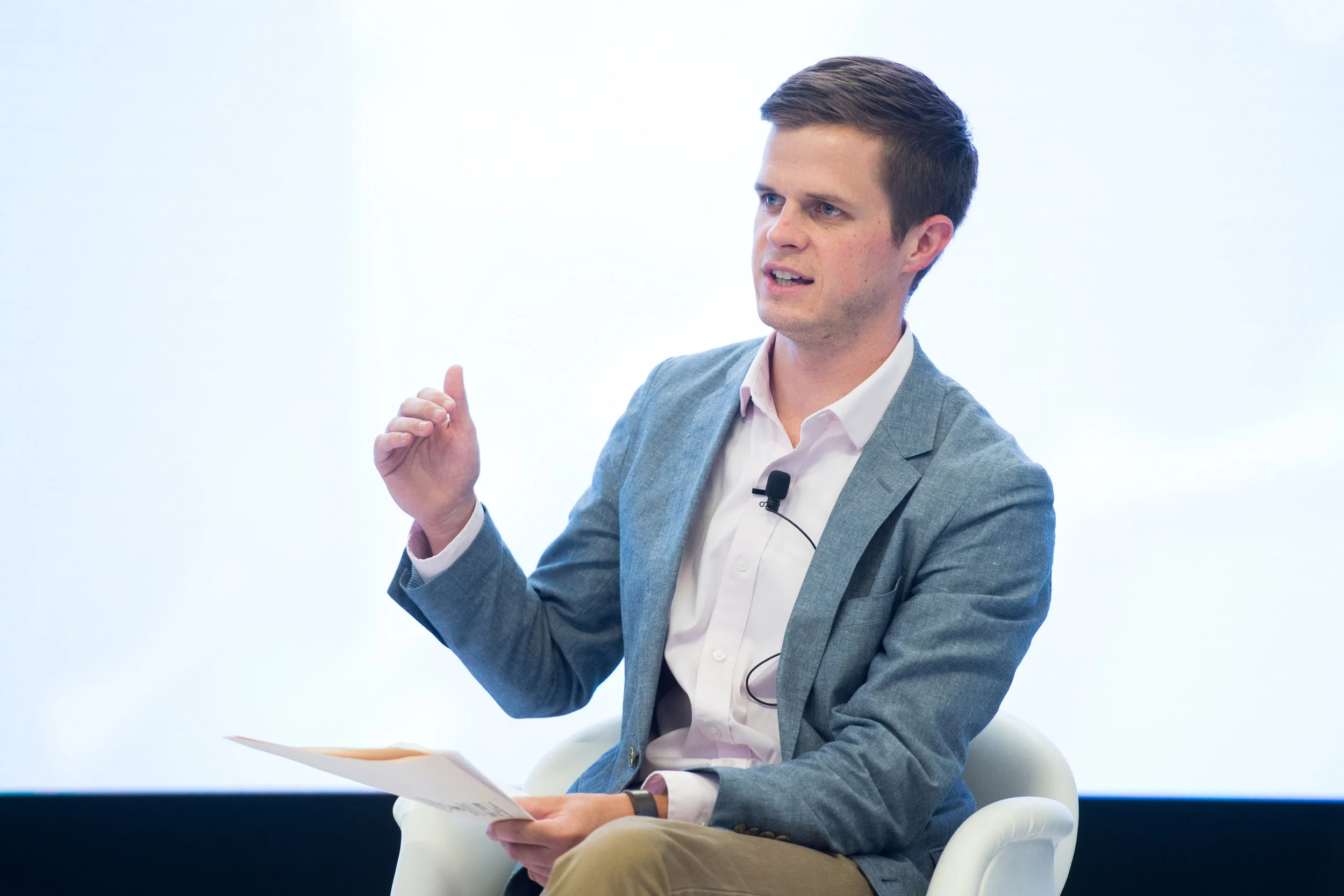Tyler Castle – John Jay Fellow, Fall 2012
Director for Academic Programs and Values & Capitalism, American Enterprise Institute
Tyler Castle is the director for Academic Programs and Values & Capitalism at the American Enterprise Institute (AEI). Values & Capitalism is an initiative of AEI that engages Christian higher education to advance a moral case for free enterprise and cultivate an understanding of the conditions necessary for human flourishing. Tyler is a graduate of Westmont College with a degree in political science, a former John Jay Institute Fellow, and a former intern in the U.S. House of Representatives.
Tyler approaches his work with an emphasis on balance. He recognizes the role that Christians must play in cultivating a societal framework that contributes broadly to human dignity and promotes human flourishing, while acknowledging practical and cultural realities. And it must start at the source:
“I think it first starts in the family. This is a theme from my time at John Jay. When we consider all the contemporary issues facing society and the church, it’s clear that the lack of supportive family is a key factor. In order to have a healthy society – especially a healthy free society – we must have healthy families. That’s number one. Related to that is the community. In America we tend to be an overly individualistic culture; we value the individual to the detriment of the community. We find ourselves alone and disconnected.”
While secular modernity has encouraged contemporary Christians to be ‘church shoppers’ or to simply ‘go it alone,’ Tyler recognizes the centrality of thick, embodied associations, both voluntary and involuntary. These include family, community, the workplace, churches, and other civic groups. It is clear that we need relationships and community to thrive. And as a society, we should recommit ourselves to build and strengthen – and when necessary, reform – the institutions that facilitate both things. We need these healthy structures. But what does this look like? Where do we begin?
First and foremost, Tyler believes:
“We must rediscover the joy of committing to a church body, and once committed, sticking with it; doing what they can to revitalize that church community. Young people today are entering adulthood lacking an understanding of the vital importance of community, what they can contribute to it, and how to improve it. We are losing our place. I am of the mindset that institutions are incredibly important for human life and human flourishing, the church being the most important of all. We need these structures in our lives to guide us and to give us a sense of community. That’s especially true in our modern individualized culture.”
The church is the foundational community for Christians, regardless of denominational or cultural background. This foundation goes beyond the visible structures of the church walls. It means that gathering with other Christians – worshiping, praying, believing, and serving together – does not just take place on Sunday mornings. For Tyler, this understanding of “church” grew out of his time at John Jay. It isn’t a weekly event on the calendar; it is a reinvigoration of faith, day after day, hour after hour. It is a reorientation of the soul through the broader spiritual community of believers.
“More and more, I have come to appreciate daily, communal worship. The practice of coming together. The practice of prayer in the morning and evening... on our knees, offering the day to God, and thanking God in the evening, no matter what came about in the day. We cannot truly live life to the fullest if we aren’t able to orient our thoughts and our actions toward God. The church serves us in this respect – continually prodding our minds and souls to a higher place.”
The Gospel is the best story ever told, and we must not succumb to the contemporary practice of dumbing it down and minimizing it:
“The intellectual side of things really matters. We must encourage young people to engage with the best of Christian thought, both now and across the ages, because so much of the past speaks into our current situation. Attempting to figure out the problems we face today without drawing upon the wisdom and experience of those who came before us is a fool’s errand. We need to be giving young people the opportunity to interact with those resources.”
There are two sides to the cultivation of Christian faith and leadership. Just as we are both spirit and body, we require education of the mind and the heart. Our culture used to be filled with daily reminders of our Christian identity, yet we have forgotten this history. The liturgies of daily life reinforce our place, for better or worse. We can appreciate the universal – being across time and community – and still dwell in the time and place we find ourselves. The daily habits we form have a direct influence on the loves of our hearts. Humans have innate desires; in some ways, the contemporary appreciation of and search for metaphysical truth and meaning is leaving people hungry for more than what the material world can give them, whether that is money or success, or even family or marriage.
“When I look back, the penultimate takeaway from my time at the John Jay Institute wasn’t simply the intellectual insight that I gained, but the charge that we were given after we had this experience. That is – we have been equipped by God, given certain talents and abilities, and we must consider how we can use those for His glory. We must be faithful to do the difficult things, with a sense of gratitude and appreciation, realizing that we are a part of something special – the working of the Holy Spirit, in communion with the Church, past, present, and future. These three components – the intellectual, the need for community, and the charge to consider seriously one’s responsibility and calling – these are vital to cultivating new young leaders.”
“The John Jay Institute exists to cultivate principled Christian leaders. This is also what God is calling me to accomplish through my current work with the Values and Capitalism project at the American Enterprise Institute. I am grateful for the influence of John Jay that is rippling outward, by the grace of God.”
Young men and women come to the John Jay Institute to develop and nurture a vision for flourishing human societies. During their four-month fellowship, they receive the intellectual, spiritual, and professional training to become effective leaders. And, as we see through the thoughtful work of Tyler Castle, they leave strengthened, encouraged, and emboldened to make a lasting impact on American culture, for the glory of God. Learn more about what it means to be a John Jay Fellow.


